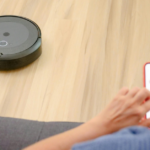A few weeks ago, I became a close contact to someone who had contracted COVID. But here’s the thing: before we met up, she had done a self-test and it came out negative. A day later, she tested again and it turned out positive. If you’ve ever come across a similar situation, it can be extremely confusing and scary. How can someone test negative one day and positive the next? With the increase of the COVID self-test kit and my personal experience, I was curious about how accurate it actually is. That’s when I did some digging and found this piece of information. Apparently, you can test negative and still have COVID. Why is this? Well, here’s a thorough explanation exclusively from Glitz.
Types Of COVID Tests
Contents
1. PCR Test
A Polymerase Chain Reaction (PCR) test is the first and earliest testing method used to detect COVID. This test is usually taken at a hospital or clinic and is usually done by a professional. A PCR test typically involves taking a sample from the nose and throat. Despite a PCR test having the highest accuracy, it’s also expensive. Furthermore, it takes hours to come up with the results and only specific labs have the equipment to conduct the process.
2. Self-test Kit
Recently, COVID self-test kits have been the most common type of test Singaporeans use. Mainly because it is affordable, fast, and hassle-free. There are two ways to collect the sample when using a self-test kit. One of which is through your nose, and the other is a saliva sample. Every self-test kit comes with instructions so fret not if it’s your first time. Other than that, you can obtain your results in 20 minutes. Thus, this is one of the preferred methods of testing these days.
Why Do I Have COVID But Tested Negative?
With the increase in usage of self-test kits, it’s important to note that they are a low-sensitivity rapid antigen test. Therefore, if you look at the diagram above, you can see that the low-sensitivity rapid antigen test is only able to detect COVID if the amount of virus in your body is above a certain level. But the good thing about self-test kits is that they detect COVID when you’re in the infectious window period. Though they can still be a reliable testing method, it can be scary because you can test negative one day and turn positive the next day. Therefore, if you’re displaying symptoms of COVID, it’s best for you to stay home and stay safe.
On the contrary, if you were to do a PCR test, you would most likely be able to detect COVID before you’re infectious. This is because a PCR test picks up on the tiniest strain of the virus as it has high sensitivity. Now, you may think that it’s a good thing. But it’s also vital to understand that even when you’re no longer infectious, you could still test positive through a PCR test. This is because the COVID virus actually stays in your body for 90 days. However, after a certain period of time, you will no longer be infectious. Thus, even though you have the virus in your body, you will no longer spread it to others.
How Long Does It Take To Recover?
Almost everyone who contracts COVID has a fever and 50% of them develop a dry cough. You may also feel extremely tired, have a headache, and have joint pains. Other than that, you may lose your sense of taste and smell as well. In fact, many people say that contracting COVID feels like contracting a very bad cold. You may feel like this is the sickest you’ve ever been. But as long as you track your symptoms and have no breathing difficulties, you should be able to recover easily.
It may take about 2 weeks for your symptoms to go away. On the other hand, it may take up to 6 weeks for those who fall under the critical cases. Some people still feel the effects of COVID a few months after their infectious period. How long it takes to recover from COVID depends on your immune system. Therefore, it’s important that you boost your immune system by fueling your body with the supplements it needs.
Boosting Your Immune System
Keeping your health in check is really important, especially during the current pandemic. If you’re thinking of ways to boost your immune system, then check out our short and simple list:
1. Eat Healthy Food

You are what you eat. If you choose to eat junk food and consume sugary drinks, it will surely affect your health. Not only does it cause long-term effects, but fried foods cause sore throat. And sore throat is one of the common symptoms of COVID. Therefore, it’s important to consume vegetables and fruits. Try avoiding fast or fried food and stick to clean cooking methods. This can be in the form of steaming or boiling. Furthermore, this can help if you’re planning to lose a few pounds. *wink* *wink*
2. Exercise Regularly

One great thing about the pandemic is that many people are starting to love exercising. Due to lockdowns, many are turning to home workouts that now become a normal thing in their daily schedule. Aside from keeping your body moving and boosting your immune system, exercising can also lift your mood. When you exercise, endorphins are released. This particular hormone increases the feeling of pleasure and decreases the feeling of pain and discomfort. Thus, it explains why you feel so happy and accomplished after a good workout.
3. Stop Smoking & Reduce Alcohol Consumption

COVID is a virus that attacks your lungs, which is why it’s important to ensure your lungs are healthy. Smoking can weaken your lungs, hence, lowering your immune system. While some of you may struggle to quit smoking as they commonly help release stress, it’s also important to put your health first. On the other hand, you should also reduce alcohol consumption. Not only does alcohol deteriorate your liver but lowers your immune system as well. Drinking alcohol occasionally is alright, especially if it’s wine. This is because drinking wine can have some health benefits. But of course, consuming alcohol every single day will do more harm than good to your body.
Did you like this article? Then make sure to follow us on Facebook and Instagram for more lifestyle-related information.


















